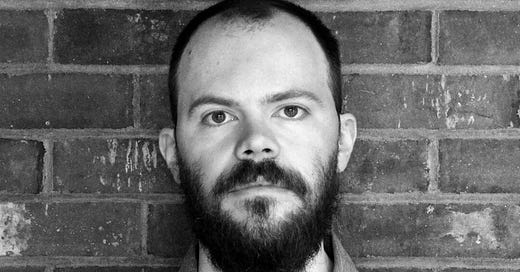Q&A with scientist and philosophical fiction author, Erik Hoel
A bite-sized interview for your Sunday morning.
If you would like to be profiled in this newsletter, here’s how.
Read Erik’s short story, "Ars memorativa” and his novel, “The Revelations”:
Click the image to get your copy!
Q&A
Are there any ideas or topics that you wish you had the courage to write about?
It's a complicated question, because it's always possible to write more about politics and other “third-rail” topics. At the same time, there's also a huge number of voices who already do that. So it's not really a lack of courage that keeps me from this. I firmly believe there should be cultural spaces that are not politics-focused, since politics is, well, an omnivorous beast. Additionally, there's something inevitably disappointing and small about it. No one really wants to know the most controversial politics of their favorite author, because it will always be disappointing. So I think such things are best approached sideways, the way a crab moves.
Which philosophy or philosopher most aligns with your own beliefs?
I'm in the analytic philosophy camp. Usually, that's not associated as much with fiction writing, being a bit too hard-nosed, too mathematical, too scientific. But a great counterexample would be Borges. All this stuff can be used, it’s just more difficult to do; you can’t let the analytical nature of the philosophy overwhelm the fiction. It’s the same challenge a sci-fi writer faces, where they can’t become too obsessed with the technical details and lose sight of the story. I don't think that there's any one particular philosopher I'm an adherent to, but a lot of big names do influence my work, from David Chalmers' view of the Hard Problem to David Lewis' notion of modal realism.
Is there any standard publishing or writing advice that you disagree with? Or any standard advice that you feel is too often neglected?
I think the number one implicit instruction that comes from the traditional publishing pipeline, especially via MFAs, is the idea that work should be resistant to critiques. The whole thing is built on critique. That’s what a workshop is, in the end. The consequence, as I've written about, is that a lot of modern fiction becomes oriented towards minimizing its attack surface. Too many modern writers are huddled like hermit crabs inside very aloof, minimalist, and politically savvy books. This result is not from explicit advice, but it is implicit advice that permeates the entire process. And I think writing defensively usually leads to boring fiction and is probably the main contributor to why modern literary fiction feels very self-similar and has for about a decade now, since MFAs became standard.
How do you come up with ideas for your short stories?
It always begins with some visualization of a scene, or particular turn of a sentence or an attractive phrase, and that acts as the seed. And then the rest of it accretes around the initial seed like some sort of geological crystal formation. The longer this process goes on, the better the end product will be when I actually go to write it, as I'll have a bunch of accreted scenes and sentences to draw from. There’s a strong trade-off of time spent vs. the depth of the story, which is why I think short stories are in some ways harder than novels.
Are there any ideas right now that are ripe for fictionalizing?
I’ll take a different tack: it’s not so much an idea that’s ripe for fictionalizing, as a medium that’s ripe for fiction. What I am surprised at is that no one has written a serialized novel on Substack (or another newsletter platform) that's made a cultural splash amid traditional publishing. Given that novels spent an entire era being serialized, I feel this is inevitable at some point, that something will break through in a big way. People are trying, but the lack of a really big “everyone is reading this” moment for newsletters means the medium, which seems so right for it, hasn’t yet reached its full literary potential.
Erik Hoel is an essayist, fiction writer, and scientist who grew up in his mother’s independent bookstore and later received his PhD in neuroscience at the University of Wisconsin-Madison. He was previously a Forbes 30 Under 30 in Science as well as a New York City Emerging Writers Fellow. He is the author of the novel The Revelations and the non-fiction The World Behind the World. Erik writes on his popular Substack, The Intrinsic Perspective, and lives on Cape Cod in Massachusetts.










Really great interview, so happy we were able to do this!